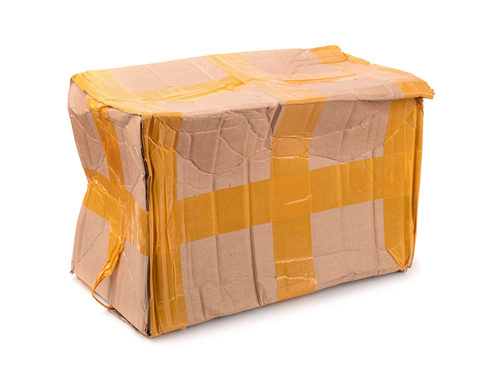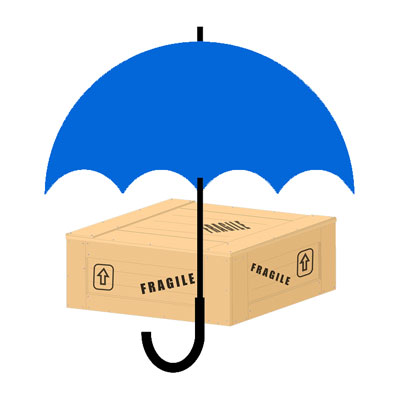Frieght Claim Have Operator Keep Track of Excess Scrap
6 Types of Freight Claims and 6 Reasons for Denial
 As a freight broker/intermediary, Logistics Plus has no legal liability for loss and damage claims that occur as a result of carrier services we source for our customers; although we do offer to assist our customers with the processing of freight claims. No one likes to deal with missing or damaged goods or filing freight claims, but sometimes it happens. Here are six common types of freight claims.
As a freight broker/intermediary, Logistics Plus has no legal liability for loss and damage claims that occur as a result of carrier services we source for our customers; although we do offer to assist our customers with the processing of freight claims. No one likes to deal with missing or damaged goods or filing freight claims, but sometimes it happens. Here are six common types of freight claims.
- Damaged Claim – If physical damage to your shipment packaging is visible as noted by your consignee on the delivery receipt (or proof of delivery, POD), you can file a damage claim. Typically, you have nine months to submit a claim for visibly damaged goods. With proper evidence, the carrier will most likely refund a portion of your shipping costs. However, you'll have to pay your freight invoice upfront and get reimbursed for any losses when the claim is processed.
- Concealed Damage Claim – When damage is concealed, that generally means it isn't visible until after delivery, which means it was probably not notated on the POD. Concealed damaged claims are harder to prove. Most carriers only allow a five-day window to file a concealed damage claim (some even less based on each carriers' rules tariff). If more than the allotted timeframe passes before you file, the carrier that handled your shipment will likely deny your claim. Including photos and any other evidence, you have with your claim will increase your odds of getting a partial refund.
- Shortage Claim – If your shipment shows up with a shortage and the consignee notates it on the POD, you can file a shortage claim. This can happen if the packaging is not intact and freight is missing. It can also happen if the amount of freight delivered doesn't match what's printed on the original bill of lading (BOL). Again, you typically nine months to file a claim. Expect to pay your freight upfront and then get reimbursed once the claim has been processed.
- Concealed Shortage Claim – Like a concealed damage claim, concealed shortage claims occur when a missing product is not noted on your POD, meaning it isn't visibly evident that you're short until after delivery. With concealed shortages, the packaging is usually intact, and it's not obvious that freight delivered doesn't match freight specified on the original BOL. Concealed shortage claims are difficult to prove, so you'll often find that carriers push back. As with other concealed claims, time is of the essence. You only have five business days (or less) to file a claim.
- Refused Claim – Sometimes, a shipment delivers and it's the wrong freight, the product is damaged, or the shipment is late. Consignees have the right to refuse part or all of shipment if they are unhappy with the condition of their freight. If your consignee refuses the shipment, it's returned to the carrier's delivery terminal. The carrier will contact you and ask what you want them to do with your shipment. Your options are to have it shipped back to you, have it sent to another address, or have it disposed of. In most cases, you will not have to pay your invoice.
- Loss Claim – A loss claim is a worst-case scenario because it means your entire shipment was lost by the carrier. This most commonly happens when shipment paperwork is separated from the freight. When this occurs, the carrier typically has a week to attempt to locate your freight. If they can't find it, you shouldn't be charged for shipping.
The carrier must acknowledge receipt within 30 days (49 CFR 370.5). Carriers must pay, decline, or make a firm compromise settlement offer within 120 days after receipt of the claim (49 CFR 370.9). The time period for commencing civil action cannot be less than two years from the date the carrier gives written notice to the claimant disallowing the claim (49 USC 14706e). Since there are legal time limits for filing and processing claims, you must obtain registered mail or other receipts indicating when you filed your claim.
Now that you understand the most common freight claim types, here are six common reasons why freight claims may be denied.
- Incomplete/Inadequate Documentation – When filing a freight claim, shippers should be sure to follow NMFC minimum documentation requirements. Probably the most common reason for a claim being denied is because of incomplete information and/or documentation. Logistics Plus offers help as to what documentation should be filed and can assist customers with the filing process.
- Mitigation – Per NMFC guidelines, it is the responsibility of a shipper to mitigate the costs of a claim to the least amount possible, which essentially means shippers are required to do their part to help minimize financial loss. Mitigation is usually done by selling the damaged item at a discount, selling it for parts or scrap, or by repairing the item rather than replacing it completely. If making repairs, the cost of repairing the item would be the amount filed for in the claim.
- Freight Charges Not Paid – Even if the freight charges are going to be refunded or credited in their entirety¸ per industry guidelines set by the NMFC, the freight charges for a shipment must be paid before a claim can be settled.
- Pallet/Piece Count – A bill of lading will typically denote having received "x" number of skids/pieces intact (shrink-wrapped/non-shrink wrapped) when a shipper performs their own load and count. When a carrier doesn't perform the load and count, it's considered that the number of skids/pieces tendered to the carrier is the quantity shipped, since they aren't able to perform a piece count of the broken-down shipment before it was packaged to verify quantity. For example, a carrier is tendered 2 shrink-wrapped skids comprised of 25 individual boxes on each skid for a total of 50 boxes for the entire shipment, which the shipper shrink-wrapped and loaded onto the truck themselves. The carrier will likely mark the BOL as having received 2 shrink wrapped skids said to contain 50 boxes. When both skids arrive at the consignee and a shortage of 1 box is discovered, it's difficult to prove that the shipment only contained 50 boxes to begin with. The shipper could have packaged the shipment with only 49 boxes by accident. The only thing the carrier knows for certain is that 2 skids were tendered, and 2 skids were delivered, as there was no opportunity for the driver to verify or count all 50 boxes, especially when skids are already shrink-wrapped when a carrier arrives for pickup.
- Clear Delivery – Establishing carrier liability without notation of damage on the delivery receipt can be difficult. In spite of what some shippers may think, writing "Subject to Inspection" on the POD does not serve as sufficient evidence that any specific damage has occurred, because it can create a scenario in which the consignee is the only witness to the discovery of the damage, which leaves reasonable doubt as to who was in possession of the shipment when the damage occurred.
- Act of God – Carriers are exempt from liability for things like hurricanes, floods, and fires, which are considered an act of God and beyond a carrier's control.
 You should be aware that all freight shipments come with some sort of "limited liability coverage." This coverage is determined by the carrier and varies depending on the commodity type or freight class of the goods being shipped (more LTL carriers are going to limited liability by freight class). For the most part, carrier liability covers up to a certain dollar amount per pound of freight. It is not uncommon to find that the included liability coverage is less than the actual value of the goods being shipped. New goods liability limits generally run between $2 and $10 per pound; while used goods will typically be capped at $0.10 to $0.50 per pound. Also, special commodities also have released-value liability limits. So, if you are shipping a high-value shipment (new or used), you should consider some sort of additional shippers' interest cargo insurance coverage.
You should be aware that all freight shipments come with some sort of "limited liability coverage." This coverage is determined by the carrier and varies depending on the commodity type or freight class of the goods being shipped (more LTL carriers are going to limited liability by freight class). For the most part, carrier liability covers up to a certain dollar amount per pound of freight. It is not uncommon to find that the included liability coverage is less than the actual value of the goods being shipped. New goods liability limits generally run between $2 and $10 per pound; while used goods will typically be capped at $0.10 to $0.50 per pound. Also, special commodities also have released-value liability limits. So, if you are shipping a high-value shipment (new or used), you should consider some sort of additional shippers' interest cargo insurance coverage.
Need freight claims help or are you looking for a freight claims management solution? Contact Logistics Plus – we're here to help!

Frieght Claim Have Operator Keep Track of Excess Scrap
Source: https://www.logisticsplus.com/6-types-of-freight-claims-and-6-reasons-for-denial/